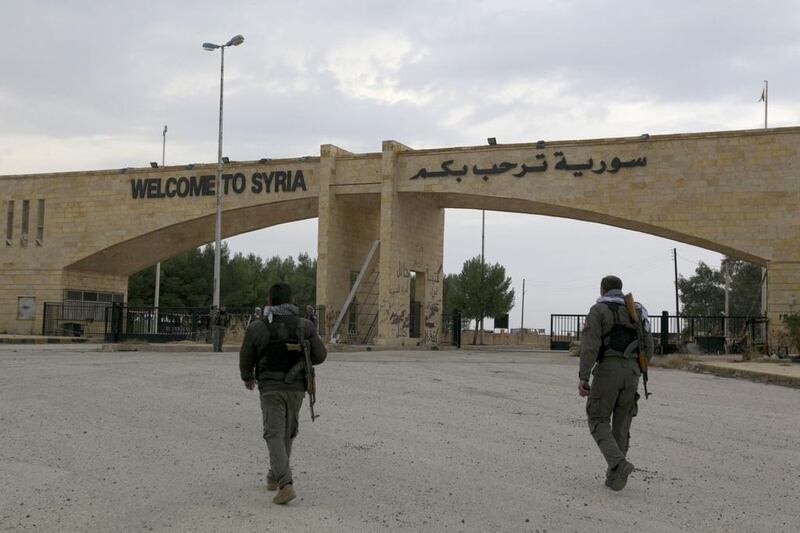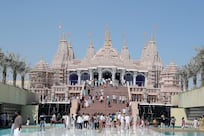BAGHDAD // As the latest showdown between Kurdish forces and militant rebels eases in north-east Syria, Baghdad is keeping a close watch on a battle that threatens even greater instability in Iraq.
Kurdish forces and groups linked to Al Qaeda have for weeks fought over territory, with the Kurds taking over a key border point late last month.
But with the likelihood of more fighting to follow, Baghdad is worried of militant Islamist fighters securing a wider corridor between eastern Syria and western Iraq.
“This border point is significant for both Al Qaeda, and the Kurds,” said Ali Al Haidari, a Baghdad-based security analyst. “At the same time, it threatens the Iraqi government’s security as well.”
“For Al Qaeda, it is a border point through which they smuggle explosives, fighters and suicide bombers.”
Iraq and Syria share a 600-kilometre) border, and extremist rebels and Kurdish forces have for weeks fought fierce battles to the frontier’s east, culminating with Kurdish fighters seizing the Al Yaarubia crossing in late October.
Iraq’s security forces reinforced their side of the border as the clashes raged in a bid to prevent militant rebels from retreating into the northern Iraqi province of Nineveh.
The clashes do not directly threaten Bashar Al Assad, Syria’s president who has fought against an armed rebellion for more than two years.
But their proximity to Iraq and the strategic importance of the border point are the latest example of the Syrian civil war’s potential spillover into Iraq.
“If Al Yaarubia fell into the hands of the Al Nusra Front or other terrorist groups, our area would be in danger,” said Naif Sido, the mayor of Snoni, an Iraqi town near the border.
Mr Sido said security forces — both from the central government as well as Iraq’s autonomous Kurdish region, which are often at odds — and local officials were holding weekly meetings to keep tabs on the situation.
Al Nusra and the Islamic State of Iraq and the Levant, both linked to Al Qaeda, have increasingly fought against Kurdish forces in northern Syria, in Hasaka, Aleppo and Raqqa provinces.
Their aim, analysts say, is to establish control of key border points to ensure easier transit of fighters and equipment.
The militant Islamists also see Iraq and Syria as one large, contiguous battlefield.
“It’s an ideological thing for them,” said Aymenn Al Tamimi of the Middle East Forum think tank.
Mr Al Tamimi said the Islamic State of Iraq and the Levant in particular “sees Iraq and Syria as one battleground. It’s part of the wider project of achieving the first goal of building an Islamic state in Iraq and Syria”.
He noted that borders had been a focus for militant rebel groups seeking to establish secure supply lines for reinforcements and military supplies.
And he warned that the Kurds’ seizure of Al Yaarubia did not mean the fighting was over.
“It’s not going to stop,” Mr Al Tamimi said. “It’s still going to be a pretty bad situation for the Iraqi government.”
Agence France-Presse





